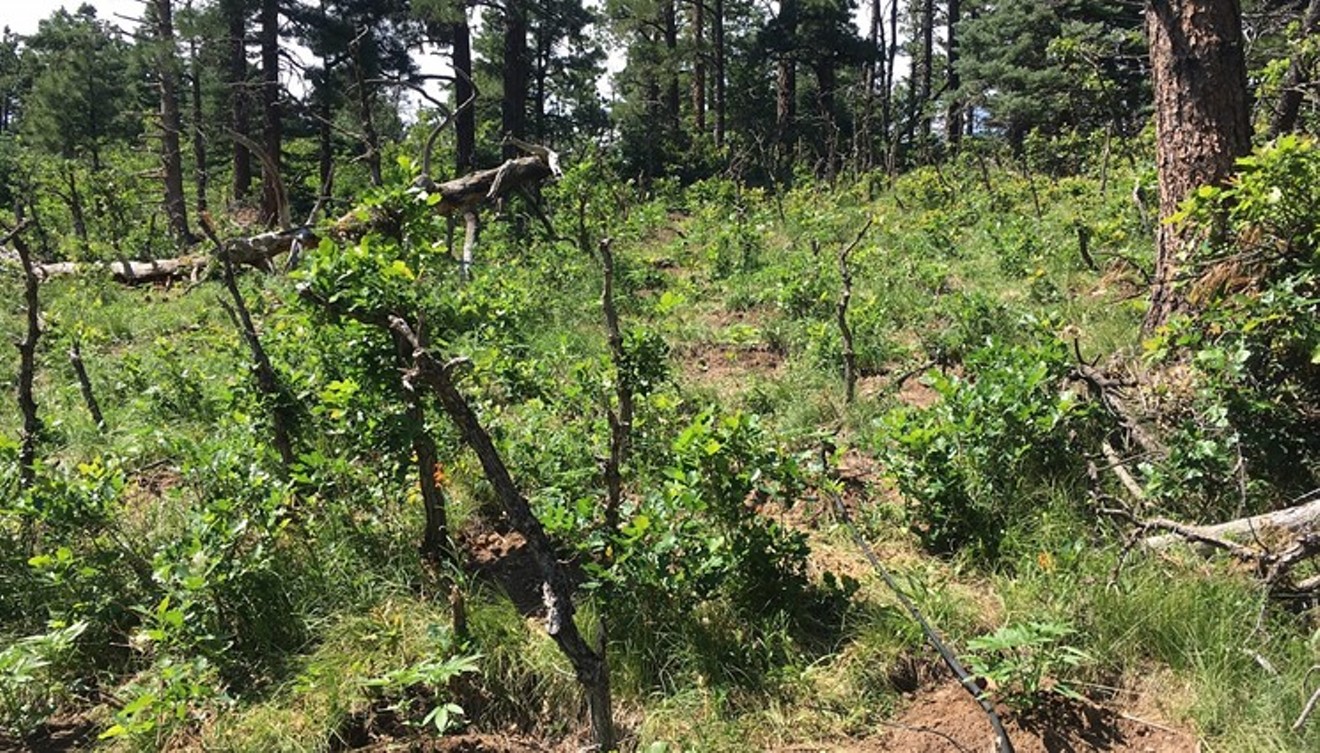"The job of the attorney general is as protector of Coloradans and defender of Colorado," Brauchler said about Amendment 64 in an interview conducted prior to Sessions's early January rescinding of an Obama-era policy known as the Cole memo. "That includes the laws, and whether I agree or disagree with 64, I am in favor of Coloradans governing each other as opposed to Washington, D.C., doing it. Attorney General Jeff Sessions has his views on marijuana, but those things are less significant to me than what Coloradans do when governing each other. And when 55 percent of voters put marijuana in our constitution — which makes it so much harder to deal with when you're looking at ways to improve it, by the way — I'm committed to upholding the spirit of that law, while at the same time trying to mitigate against all the negative stuff that impacts our communities and our kids."
Despite his anti-pot reputation, Brauchler insists that he's kept an open mind on the subject.

Eight of the nine people arrested for one Pueblo outdoor marijuana grow in 2017. They're all from Mexico.
Courtesy of the Pueblo County Sheriff's Office
These sit-downs convinced Brauchler that "the folks in this industry are sincerely invested, not just intellectually but financially, when it comes to complying with Colorado's tremendous regulatory framework for growing and dispensing legalized marijuana, whether it's recreational or medical. I believe that. These guys have too much at stake, too much money invested in this, to put themselves in a position where the state comes in and says, 'Boom! We're hitting you with a $10,000 fine.'"
Industry rules and regs "aren't the weakest part of the system," he allows. "The weakest part of our system is the thriving black market. But there are things the attorney general can do about that, because the attorney general's office has a ton of resources. I'm guessing that over the past five or six years, the budget has grown by 40 percent. It's a huge budget, and my proposal would be to find prosecutors that act as assistant attorneys general and who are committed to a specific region of the state to supplement, not supplant, local prosecution efforts when it comes to these giant, illegal marijuana grows."
When asked for reasons that such a plan is needed, Brauchler offers the following example: "I went down to the 22nd Judicial District, which is Montezuma, Cortez — a beautiful area. There's a DA down there named Will Furse and a couple of great sheriffs, and they all say the same thing: 'We're already maxed to the hilt of what we can do to address crime in our jurisdictions. We don't have extra prosecutors waiting for work on these giant, cartel-driven marijuana grows.' Everybody seems to know where at least one of them is. It'll be on federal land or it'll be on state land, but they all know where they are — and they don't have the resources of an 18th Judicial District, like I have, to put together a task force and go out and tackle these things on a consistent basis."
However, he goes on, "the attorney general is in a unique position to use the office's resources to coordinate a task force to do exactly that — and provide a long-term prosecutor in that region. If I had my druthers, it would be someone who lives in that area and isn't commuting out from Denver. You have many former elected district attorneys who have a ton of experience and are no longer in office. If we could give them a decent wage to be prosecutors out there, we could tackle the black market. The state could push money to help rural areas out — and the more impact we have in those areas, the more pressure it puts on these operations that have easy access up and down the state, whether it's on I-25 or whatever."
As a bonus, Brauchler is confident that the legitimate marijuana industry would be behind such a crackdown.
"I think every single one of the folks I've talked to is completely supportive of the idea of eradicating illegal grows," he says. "Some of that is profit-driven, because if you get rid of the illegal market, you have to go to the legal market. But I think there's something else at work here. These guys are savvy enough to know that every bad thing that happens because of marijuana, whether it's legal or illegal, is a black eye for them. They suffer from bad publicity, because they're the easiest-to-recognize representation of the marijuana market. And since they're anxious for people to view them as a legitimate business, they're also anxious to get rid of the bad guys. And the attorney general can help do that."













